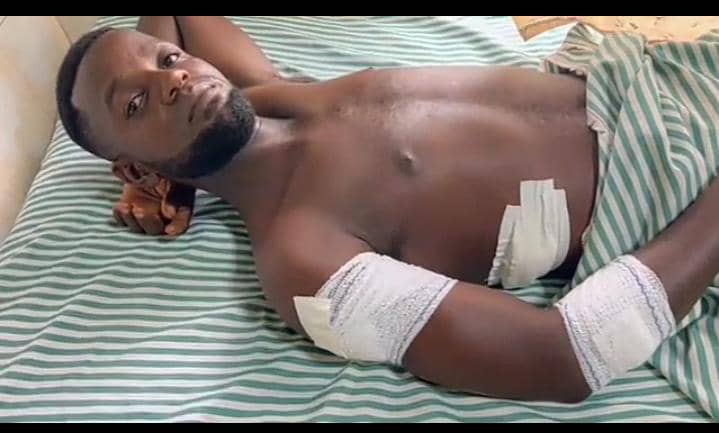The serene atmosphere of the Nkwanta South Municipality in the Oti Region of Ghana has been shattered by a wave of violence, leaving residents gripped by tension and fear. The recent shooting of two Konkomba youths, Mr. Ujakpa Nakoja and Mr. Niyasangma Joseph, at Abrewankor junction has further escalated the existing anxieties, underscoring the urgent need for peace and reconciliation in the area. Both victims, hailing from the farming community of Pawa, are currently receiving critical care at medical facilities within the municipality. This incident follows a string of similar violent occurrences, intensifying the prevailing sense of insecurity and demanding immediate action to restore calm and prevent further bloodshed.
The shooting of Mr. Nakoja and Mr. Joseph has galvanized prominent figures within the Konkomba community to step forward and appeal for restraint and peaceful resolution. Dr. Joshua Makubu and Mr. Daniel Machator, both former Oti Regional Ministers, along with Ubor Tassan Konja VI, Kpassa-Wura, have urged their community to resist the urge for retaliation and allow law enforcement agencies to conduct a thorough investigation. Emphasizing the importance of dialogue over violence, these leaders have pleaded for peace, recognizing the devastating consequences of escalating conflict, especially for innocent bystanders who often become unintended victims. Their call echoes the sentiments of many within the community who yearn for a return to peaceful coexistence.
The leaders’ appeal highlights the historical interconnectedness of the various ethnic groups residing in the Nkwanta South Municipality. The Konkomba people, along with the Adele, Challa, and Akyode communities, share a long history of cohabitation, marked by periods of harmony and cooperation. This shared history serves as a foundation for the current calls for unity and restraint, reminding everyone of the benefits of peaceful coexistence and the potential for rebuilding fractured relationships. This emphasis on shared history serves as a powerful reminder of the common bonds that unite these communities and the need to prioritize those bonds over the current climate of fear and animosity.
This recent wave of violence underscores the fragility of peace and the importance of proactive measures to address underlying tensions before they escalate into open conflict. While the immediate focus remains on providing medical care to the victims and ensuring their safety, the long-term solution lies in addressing the root causes of the conflict. This requires a multi-faceted approach involving community leaders, law enforcement agencies, and governmental organizations working together to foster dialogue, promote understanding, and implement strategies for sustainable peace. The involvement of prominent Konkomba figures highlights the community’s commitment to finding peaceful resolutions and their recognition of the devastating consequences of continued violence.
The ongoing investigations into the shooting of Mr. Nakoja and Mr. Joseph are crucial for ensuring accountability and delivering justice for the victims and their families. A thorough and impartial investigation will not only help to identify the perpetrators but also shed light on the underlying motives and contributing factors to the violence. This information is essential for developing effective strategies to prevent future incidents and build a lasting peace within the community. Transparency and accountability in the investigative process are crucial for restoring public trust and demonstrating a commitment to justice.
The calls for calm and restraint from Konkomba leaders represent a critical step towards de-escalating tensions and creating an environment conducive to dialogue and reconciliation. By urging their community to refrain from retaliatory actions, these leaders are demonstrating their commitment to peaceful resolution and their understanding of the devastating cycle of violence that can ensue. Their appeals highlight the importance of community leadership in promoting peace and fostering a sense of shared responsibility for building a more secure and harmonious future for all residents of the Nkwanta South Municipality. The current situation emphasizes the urgent need for collective action to restore peace and rebuild trust among the diverse communities residing within the region.


